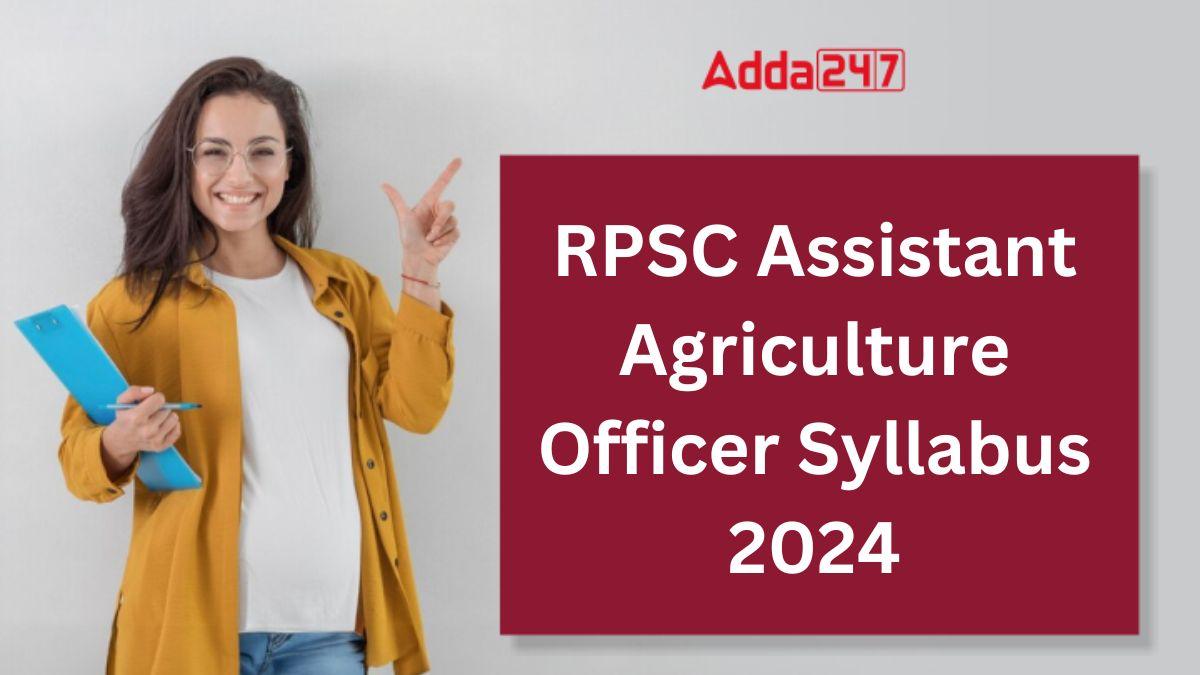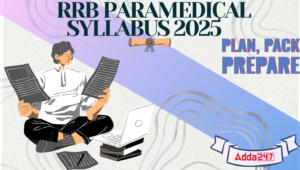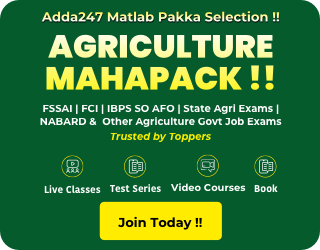Table of Contents
The question paper for the Assistant Agriculture Officer exam is divided into two parts. It includes general knowledge about Rajasthan’s history, culture, and geography, as well as specialized agriculture topics like agronomy, plant breeding, soil science, horticulture, extension education, agricultural economics, farm machinery, statistics, plant pathology, and entomology. On this page, we provide the complete syllabus for the RPSC Assistant Agriculture Officer recruitment with the official PDF, along with the latest updates on the exam pattern.
RPSC Assistant Agriculture Officer Syllabus 2024
The RPSC Assistant Agriculture Officer Syllabus 2024 includes important topics for exam preparation. It covers general knowledge about Rajasthan along with specific agriculture subjects. The exam will have 150 multiple-choice questions in two parts and will be in both English and Hindi. Candidates will have 2.5 hours to complete the exam, so it’s important to study these topics to do well.
RPSC Assistant Agriculture Officer Exam Pattern
The RPSC Assistant Agriculture Officer Exam Pattern includes an objective type paper with 150 questions, all worth the same marks. The total score for the exam is 150, and candidates will have 2.5 hours to finish it. The exam will be available in both English and Hindi. There is also a negative marking; if a candidate answers a question incorrectly, one-third of the marks for that question will be taken away. This pattern helps to fairly evaluate the candidates’ knowledge and skills.
| RPSC Assistant Agriculture Officer Exam Pattern | |
|---|---|
| Type of Paper | Objective Type |
| Maximum Marks | 150 |
| Number of Questions | 150 |
| Duration of Paper | 2.5 Hours |
| Marks per Question | All questions carry equal marks |
| Medium of Screening Test | Bilingual (English & Hindi) |
| Negative Marking | Yes (One-third marks deducted for each wrong answer) |
RPSC Assistant Agriculture Officer Syllabus: Detailed
The RPSC Assistant Agriculture Officer syllabus for the screening test for the Assistant Agriculture Officer position includes a section on General Knowledge of Rajasthan, which will have 30 questions. This part tests candidates’ knowledge about the state’s history, culture, geography, and important events. Understanding this information is important for working effectively in Rajasthan’s agricultural community.
Historical Rajasthan:
- Pre and Proto-historical Sites: Important archaeological sites.
- Early Christian Era: Key historical centers.
- Rajput Dynasties: Prominent rulers such as the Guhilas, Sisodiyas, Chauhans, Rathores, and Kachchawas, along with their achievements and contributions.
Emergence of Modern Rajasthan:
- Social Awakening: Key figures and movements in the 19th and 20th centuries.
- Political Awakening: The role of newspapers and political institutions, including the Prajamandal movement and the integration of Rajasthan.
Social Life in Rajasthan:
- Fairs and Festivals: Important celebrations and cultural events.
- Customs and Traditions: Social practices, clothing, and jewelry.
- Notable Personalities: Influential figures from Rajasthan.
Art of Rajasthan:
- Architectural Tradition: Temples, forts, and palaces from ancient to modern times.
- Painting Schools: Various styles that developed during the medieval period.
- Music and Dance: Classical and folk music, instruments, and dance forms.
Religious Life:
- Communities and Sects: Major religious groups and their beliefs.
- Folk Deities: Important local deities in Rajasthan.
- Language & Literature:
- Dialects: Different forms of the Rajasthani language.
- Literature: Works in Rajasthani and folk literature.
Geography of Rajasthan
- Physiographic Divisions: Major landforms in the state.
- Drainage and Weather: River systems and climate conditions.
- Natural Resources: Vegetation, forests, soil types, minerals, and livestock.
- Wildlife Conservation: Efforts to protect wildlife and the environment.
- Development Issues: Challenges like droughts and desertification, major irrigation projects, and population growth.
- Tribes and Handicrafts: Tribal communities and local crafts.
- Tourism and Development Schemes: Initiatives to boost tourism and local development.
- Power Resources: Conventional and non-conventional energy sources.
Part B of the syllabus for the Assistant Agriculture Officer exam will consist of 120 questions focused on specialized agriculture topics. This section is designed to assess candidates’ knowledge and skills in various agricultural practices and principles.
Agro-Climatology:
- Elements affecting plant growth and the impact of weather abnormalities.
- Protective measures against adverse weather conditions.
- Key elements of crop production, crop classification, and farming systems.
Soil and Water Management:
- Tillage practices, soil erosion, and conservation methods.
- Soil productivity, fertility, organic matter, and fertilizer efficiency.
- Importance of irrigation, water quality, pollution, crop water requirements, irrigation methods, and drainage.
Crop Production:
- Concepts and challenges in dryland agriculture, weed problems, and control measures.
- Seed quality, certification, and agronomy of major crops like cereals, pulses, oilseeds, and root vegetables.
Plant Breeding:
- Objectives, methods, and Mendel’s laws of inheritance.
- Understanding seed testing, seed types, and recommended varieties for Rajasthan.
Plant Growth Regulation:
- Use of plant growth regulators and managing abiotic stress.
- Importance of nanoparticles in agriculture.
Soil Science:
- Soil formation, profiles, surveys, and classification.
- Understanding physical properties, soil management, nutrient fixation, and essential nutrients.
Olericulture and Horticulture:
- Classification and cultivation practices for various vegetables and fruits.
- Techniques for nursery management, transplantation, and preservation methods.
Forestry and Agroforestry:
- Importance of forestry and major tree species in Rajasthan.
Indian Agriculture:
- Unique aspects of Indian agriculture, land use patterns, and agricultural marketing.
- Agricultural finance, credit systems, and farm planning.
Extension Education:
- Principles of extension education, rural institutions, and teaching methods.
- Overview of historical extension programs in India.
Animal Husbandry:
- Importance in the rural economy, livestock management, and disease control.
- Nutrition and housing for various livestock breeds.
Farm Mechanization:
- Common tools, survey instruments, and farm machinery in Rajasthan.
- Methods for land preparation and irrigation water management.
Data Analysis:
- Techniques for data collection, summarization, and statistical measures.
Pest and Disease Management:
- Major diseases and pests affecting various crops, along with control measures and integrated pest management strategies.




 ICAR AIEEA PG Syllabus 2025, Check Subje...
ICAR AIEEA PG Syllabus 2025, Check Subje...
 RRB Paramedical Syllabus 2025, Check Exa...
RRB Paramedical Syllabus 2025, Check Exa...
 SHS Bihar CHO Vacancy 2025 Notification ...
SHS Bihar CHO Vacancy 2025 Notification ...


 Adda247 Job portal has complete information about all Sarkari Jobs and Naukri Alerts, its latest recruitment notifications, from all state and national level jobs and their updates.
Adda247 Job portal has complete information about all Sarkari Jobs and Naukri Alerts, its latest recruitment notifications, from all state and national level jobs and their updates.